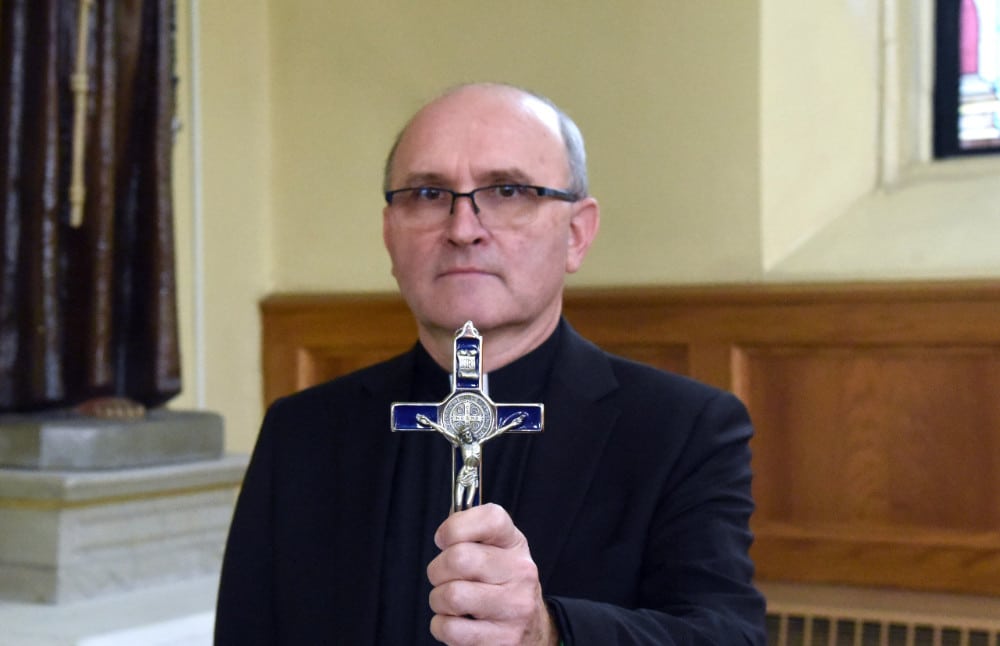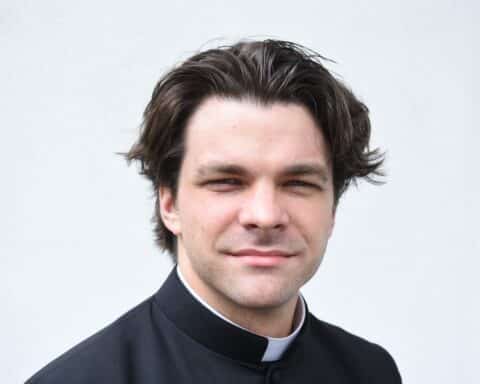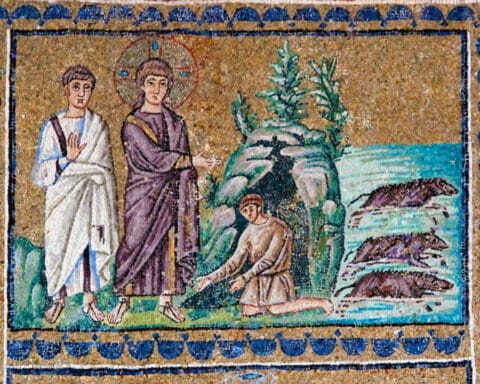
— Name withheld, Cupertino, California
Answer: The Rite of Exorcism states, “The ministry of exorcizing those possessed is given by special and express permission of the local Ordinary” (De Exorcismis et Supplicationibus Quibusdam, No. 13).
If a priest is appointed exorcist, the initiative should be the bishop’s, and the priest should receive it with great humility and reserve. It is unhealthy and likely dangerous for any priest to actively seek this office, for it usually indicates pride. This makes him an easy target for the attacks of demons and renders him far less effective. A general reluctance and careful discernment by the priest with his spiritual director and superiors is a better attitude, prior to agreeing to the ministry, if the bishop asks. The Rite of the Exorcism also gives certain qualities to be sought in a priest prior to asking him to accept the ministry: “Such permission [to be an exorcist] ought to be granted only to a priest endowed with piety, knowledge, prudence and integrity of life, who has been specifically prepared for this office. A priest to whom the office of exorcist has been committed, either stably or for a particular occasion, is to carry out this work of charity with confidence and humility under the direction of the diocesan bishop” (De Exorcismis et Supplicationibus Quibusdam, No. 13).
Hence, a bishop must either supply training to the priest or draw him from among the ranks of the priests who have assisted in exorcisms adequately and whom another diocesan exorcist can certify is ready to undertake the office itself. It is common in many dioceses to appoint an exorcist, and one or several priests to assist the exorcist. It is from these ranks that local training can take place. There are also opportunities for training here in the United States and in Rome.
The ministry of exorcist is most often a difficult one and great patience and spiritual discipline is required. He usually needs laypersons who are trained to assist. Exorcisms often involve physical struggles, and therefore others are needed to gently and expertly restrain the individual during demonic outbursts. As for the exorcisms of women, it is unthinkable that priests should be in the place of exorcism without other women present. Finally, it is often a practice that the exorcist will communicate regularly with certain teams of laypeople or cloistered religious to engage in prayer and fasting for the case(s) going on.
So, as one can see, the ministry of exorcism is ideally envisioned as a team effort. The image of a lonely exorcist conducting an exorcism with worried family members in the background on a stark and stormy night is not the picture of modern exorcism.
Penance and the creed
Question: I have two questions: 1) Can the penance you receive in the sacrament be negotiated with the confessor? And 2) with the extraordinary photos recently taken by the Webb telescope, should a change be considered to the wording in the Apostles Creed: “I believe in God the Father Almighty, Creator of heaven and earth.” The Webb photos, it seems to me, indicate that we do not give God sufficient credit for the magnitude of his creation. Perhaps we could add wording like: “Creator of outer space, including heaven and earth.”
— Jim Anderson, Rochester, New York
Answer: If a suggested penance is too hard or one’s physical or spiritual state makes it difficult to fulfill, a penitent ought to ask the priest for something more realistic. For example, a person may not know a certain prayer he is asked to say, or another penitent cannot make a visit to a local shrine due to transportation or mobility issues. The priest is usually glad to make adjustments. Further, if a penitent thinks a certain penance is too harsh or difficult to fulfill, he or she is also able to consult with another priest in confession and request to have the penance adjusted.
As for rewording the creed, the whole cosmos is included in the phrase, “Creator of heaven and earth.” The term “heaven” has at least three meanings according to biblical usage: 1) the place where the clouds are and the birds fly, 2) the place where the planets and stars sweep their course, and 3) the place where God dwells. Hence, it would be superfluous to add other phrases such as “outer space.” God has surely done a magnificent work! But “heaven and earth” includes the whole cosmos.
Msgr. Charles Pope is the pastor of Holy Comforter-St. Cyprian in Washington, D.C., and writes for the Archdiocese of Washington, D.C. at blog.adw.org. Send questions to msgrpope@osv.com.





